 My mother and her younger sister in Perth, Australia both have great skin for women their age. My aunt is 58, but could easily pass as being in her early 40s. My mother is 70, but has better skin with fewer wrinkles than many 60-year-olds. Both have had no Botox, face lifts or other skin procedures.
My mother and her younger sister in Perth, Australia both have great skin for women their age. My aunt is 58, but could easily pass as being in her early 40s. My mother is 70, but has better skin with fewer wrinkles than many 60-year-olds. Both have had no Botox, face lifts or other skin procedures.
Just good genes cause their good skin? I don’t think so. Both of them don’t smoke. They also moisturize their skin often, drink plenty of water, only spend a short amount of time in the sun (and there’s plenty of sunshine where they live), and drink little alcohol. So they put into practice well known techniques to prevent wrinkles. And it has paid off — smooth, supple and younger looking skin, with few wrinkles.
(more…)

 January 30th, 2014
January 30th, 2014  Nyomi Graef
Nyomi Graef  Posted in
Posted in 
 Is jasmine the next Valium substitute? Perhaps. Recent research has discovered that the scent of jasmine has the same effect on the brain and is as strong as barbiturates and the anesthetic propofol. Jasmine calms, relieves anxiety and promotes sleep. Researchers Professor Hanns Hatt and his team in Germany tested hundreds of fragrances and found jasmine and one other plant fragrance are especially good relaxants.
Is jasmine the next Valium substitute? Perhaps. Recent research has discovered that the scent of jasmine has the same effect on the brain and is as strong as barbiturates and the anesthetic propofol. Jasmine calms, relieves anxiety and promotes sleep. Researchers Professor Hanns Hatt and his team in Germany tested hundreds of fragrances and found jasmine and one other plant fragrance are especially good relaxants. Tags:
Tags:  Imagine if you often drove your car with very little engine oil. This one thing could have a huge negative impact on the car’s performance. When it comes to having happy minds, our bodies are similar. Just one thing out of balance can have a huge negative impact on our mental health — whether it’s a lack of vitamin D, omega-3 fat or sunlight, too much junk food and so on.
Imagine if you often drove your car with very little engine oil. This one thing could have a huge negative impact on the car’s performance. When it comes to having happy minds, our bodies are similar. Just one thing out of balance can have a huge negative impact on our mental health — whether it’s a lack of vitamin D, omega-3 fat or sunlight, too much junk food and so on. Anxiety disorders are the most common mental health problem in USA, Australia and beyond. The Centers for Disease Control and Prevention in USA say that over 15% of people are estimated to have an anxiety disorder at some stage in their lives. Common anxiety disorders are generalized anxiety disorder (GAD), phobias, obsessive compulsive disorder (OCD), post-traumatic stress disorder (PTSD) and panic disorder.
Anxiety disorders are the most common mental health problem in USA, Australia and beyond. The Centers for Disease Control and Prevention in USA say that over 15% of people are estimated to have an anxiety disorder at some stage in their lives. Common anxiety disorders are generalized anxiety disorder (GAD), phobias, obsessive compulsive disorder (OCD), post-traumatic stress disorder (PTSD) and panic disorder.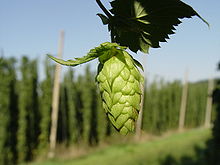 Did you know that the herbal remedy hops is related to marijuana and is legally sold in supermarkets, drugstores and health food stores across the world?
Did you know that the herbal remedy hops is related to marijuana and is legally sold in supermarkets, drugstores and health food stores across the world? Decades of research shows that a lack of vitamin E can contribute to brain diseases. This essential vitamin helps reduce the risk of stroke and Alzheimer’s disease, and helps stop blood vessels clogging, including those that supply oxygen and nutrients to the brain. Vitamin E also helps stop the fat in our brains from going rancid, so we can think, focus and remember better. Our brains are mostly made of fat, and the quality of this fat is very important.
Decades of research shows that a lack of vitamin E can contribute to brain diseases. This essential vitamin helps reduce the risk of stroke and Alzheimer’s disease, and helps stop blood vessels clogging, including those that supply oxygen and nutrients to the brain. Vitamin E also helps stop the fat in our brains from going rancid, so we can think, focus and remember better. Our brains are mostly made of fat, and the quality of this fat is very important.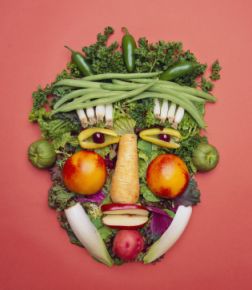 “It’s smart to take vitamin C, and it may make you even smarter.” That’s the advice from Jean Carper, author of Your Miracle Brain. She outlines studies showing that vitamin C supplements can improve IQ, memory and other mental functions, especially in people with low levels of vitamin C. This isn’t surprising considering vitamin C is involved in making neurotransmitters – chemicals that affect our mind and mood.
“It’s smart to take vitamin C, and it may make you even smarter.” That’s the advice from Jean Carper, author of Your Miracle Brain. She outlines studies showing that vitamin C supplements can improve IQ, memory and other mental functions, especially in people with low levels of vitamin C. This isn’t surprising considering vitamin C is involved in making neurotransmitters – chemicals that affect our mind and mood.  Kate Fraser, one of Australia’s leading medical herbalists, writes in her book Positive Health with Herbs that ginkgo extract has been claimed to be ““the most important single development in Western Herbal Medicine” in recent years. This claim is supported by the fact that, according to the World Health Organisation, (WHO), it was the most prescribed pharmaceutical in France and Germany… Such widespread use of a herbal extract by medical practitioners is unprecedented in post-war medicine.”
Kate Fraser, one of Australia’s leading medical herbalists, writes in her book Positive Health with Herbs that ginkgo extract has been claimed to be ““the most important single development in Western Herbal Medicine” in recent years. This claim is supported by the fact that, according to the World Health Organisation, (WHO), it was the most prescribed pharmaceutical in France and Germany… Such widespread use of a herbal extract by medical practitioners is unprecedented in post-war medicine.” The pretty little flowers of the chamomile plant have been used to treat many health problems for thousands of years. Today chamomile is popular in many countries, including Europe. In the United States and Australia, chamomile is best known as a relaxing tea. Other common uses of chamomile are to help treat anxiety, sleeplessness, stomach pain, and gas. Some beauty products, healing creams and ointments also have chamomile added.
The pretty little flowers of the chamomile plant have been used to treat many health problems for thousands of years. Today chamomile is popular in many countries, including Europe. In the United States and Australia, chamomile is best known as a relaxing tea. Other common uses of chamomile are to help treat anxiety, sleeplessness, stomach pain, and gas. Some beauty products, healing creams and ointments also have chamomile added. From before the Middle Ages the delicious herb lemon balm has been used to improve mood, help heal wounds, and treat insect bites. Today lemon balm is still used for health, especially stress, anxiety, relaxation, insomnia, cold sores, shingles, and digestive problems. Lemon balm is grown in herb gardens, and in crops for medicine, cosmetics, and making furniture polish. The herb is generally considered safe, with few side effects.
From before the Middle Ages the delicious herb lemon balm has been used to improve mood, help heal wounds, and treat insect bites. Today lemon balm is still used for health, especially stress, anxiety, relaxation, insomnia, cold sores, shingles, and digestive problems. Lemon balm is grown in herb gardens, and in crops for medicine, cosmetics, and making furniture polish. The herb is generally considered safe, with few side effects. Nutritionist Patrick Holford says that most people with intense or constant anxiety either self-medicate with alcohol or cannabis, or see their doctor, possibly to be given a prescription for a tranquiliser. “In one week in Britain, we pop 10 million tranquillisers, puff 10 million cannabis joints and drink 120 million alcoholic drinks”, says Holford, in his book Optimum Nutrition for the Mind. “The choice of these three drugs – alcohol, cannabis and tranquillisers – is no coincidence. They all promote the neurotransmitter GABA, which is the brain’s peacemaker, helping to turn off excess adrenalin and calm you down.”
Nutritionist Patrick Holford says that most people with intense or constant anxiety either self-medicate with alcohol or cannabis, or see their doctor, possibly to be given a prescription for a tranquiliser. “In one week in Britain, we pop 10 million tranquillisers, puff 10 million cannabis joints and drink 120 million alcoholic drinks”, says Holford, in his book Optimum Nutrition for the Mind. “The choice of these three drugs – alcohol, cannabis and tranquillisers – is no coincidence. They all promote the neurotransmitter GABA, which is the brain’s peacemaker, helping to turn off excess adrenalin and calm you down.”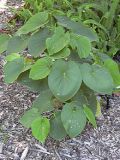 Kava has been a drink for thousands of years in the Pacific Islands. Its effects are similar to alcohol. People use kava for many reasons, in particular stress, anxiety, insomnia (sleeplessness), relaxation, improving mood, and as a social and ceremonial drink.
Kava has been a drink for thousands of years in the Pacific Islands. Its effects are similar to alcohol. People use kava for many reasons, in particular stress, anxiety, insomnia (sleeplessness), relaxation, improving mood, and as a social and ceremonial drink. A recent trial in Exeter found that Mindfulness-based Cognitive Therapy (MBCT) is at least as good as antidepressants at preventing relapses in depression, according to an article in Times Online. Other studies have found lower relapse rates in depression between groups of people who receive MBCT and groups who don’t.
A recent trial in Exeter found that Mindfulness-based Cognitive Therapy (MBCT) is at least as good as antidepressants at preventing relapses in depression, according to an article in Times Online. Other studies have found lower relapse rates in depression between groups of people who receive MBCT and groups who don’t. Did you know that there are over 10 ways that exercise helps our mind and body, but most people can only name a few? Some benefits of exercise include lowering high cholesterol, strengthening the heart, and helping treat anxiety and depression.
Did you know that there are over 10 ways that exercise helps our mind and body, but most people can only name a few? Some benefits of exercise include lowering high cholesterol, strengthening the heart, and helping treat anxiety and depression. 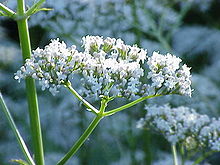 The herb valerian – often called ‘nature’s Valium’ – is a popular natural treatment in Europe, North America and Japan for insomnia and anxiety.
The herb valerian – often called ‘nature’s Valium’ – is a popular natural treatment in Europe, North America and Japan for insomnia and anxiety. Did you know that doing some simple eye movements can stop the emotional pain from bad memories? Called Eye Movement Desensitization and Reprocessing (EMDR), it’s a key treatment for trauma used all over the world by thousands of trained therapists.
Did you know that doing some simple eye movements can stop the emotional pain from bad memories? Called Eye Movement Desensitization and Reprocessing (EMDR), it’s a key treatment for trauma used all over the world by thousands of trained therapists. I’ve been interested in having hypnosis for years but, for various reasons, I put it off. Earlier this year I decided to have weekly clinical hypnotherapy sessions with a trained psychologist. I’m glad I went. I found that it helped me achieve some of my goals, and it was very relaxing – just what I needed.
I’ve been interested in having hypnosis for years but, for various reasons, I put it off. Earlier this year I decided to have weekly clinical hypnotherapy sessions with a trained psychologist. I’m glad I went. I found that it helped me achieve some of my goals, and it was very relaxing – just what I needed. Is a common type of cow’s milk consumed by millions of people across the world causing serious physical and mental health problems? Agribusiness professor and farm-management consultant Dr. Keith Woodford believes so. In his book Devil in the Milk he describes research showing that a protein in milk from particular breeds of cows – called A1 cows – is causing schizophrenia, autism, inflammation, heart disease and, possibly, type 1 diabetes. Dr. Woodford says that A2 cows, however, produce milk that does not cause health problems due to this protein.
Is a common type of cow’s milk consumed by millions of people across the world causing serious physical and mental health problems? Agribusiness professor and farm-management consultant Dr. Keith Woodford believes so. In his book Devil in the Milk he describes research showing that a protein in milk from particular breeds of cows – called A1 cows – is causing schizophrenia, autism, inflammation, heart disease and, possibly, type 1 diabetes. Dr. Woodford says that A2 cows, however, produce milk that does not cause health problems due to this protein. What do Exxon Valdez, Chernobyl, Three Mile Island and the Challenger shuttle explosion all have in common? They are all international disasters in which a lack of sleep is believed to have contributed to their cause, according to the BBC.
What do Exxon Valdez, Chernobyl, Three Mile Island and the Challenger shuttle explosion all have in common? They are all international disasters in which a lack of sleep is believed to have contributed to their cause, according to the BBC.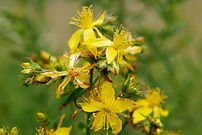 Did you know that St John’s wort is one of the most popular natural antidepressants in the United States and Canada?
Did you know that St John’s wort is one of the most popular natural antidepressants in the United States and Canada?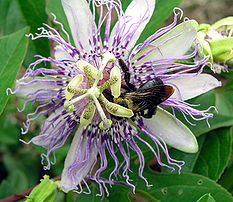 Passion flower is a native plant of North America, where it has been used for centuries as a mild sedative. It was later used in Europe and adopted by herbalists to treat insomnia, hysteria and epilepsy, and used as a painkiller.
Passion flower is a native plant of North America, where it has been used for centuries as a mild sedative. It was later used in Europe and adopted by herbalists to treat insomnia, hysteria and epilepsy, and used as a painkiller.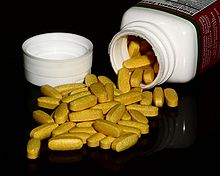 Can popping a vitamin pill help cure mental health problems? For people who lack vitamin B and show symptoms of mental illness as a result, this may be the case.
Can popping a vitamin pill help cure mental health problems? For people who lack vitamin B and show symptoms of mental illness as a result, this may be the case. Since the 1920s zinc has been known to play a role in mental health. Decades of research has found a link between taking zinc supplements and an improvement in the symptoms of schizophrenia, autism, ADHD and other mental health problems.
Since the 1920s zinc has been known to play a role in mental health. Decades of research has found a link between taking zinc supplements and an improvement in the symptoms of schizophrenia, autism, ADHD and other mental health problems. Did you know that many experts believe that an imbalance of neurotransmitters in our brain can cause mental health problems?
Did you know that many experts believe that an imbalance of neurotransmitters in our brain can cause mental health problems?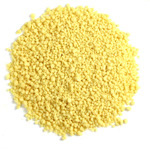
 For some of us exercise is a chore, for others it’s a joy. We all know exercise is good for us, but most of us don’t do enough for good health. Doctors estimate that between 65% and 85% of the world’s population do not exercise enough.
For some of us exercise is a chore, for others it’s a joy. We all know exercise is good for us, but most of us don’t do enough for good health. Doctors estimate that between 65% and 85% of the world’s population do not exercise enough. Are you suffering from a lack of magnesium? Chances are you could be, as many of us aren’t receiving enough from our diet. In fact magnesium deficiency is an epidemic throughout the western world. About 80% of Americans are low in it. Depression, anxiety, irritability, ADHD and nervousness are just a few of the symptoms of magnesium deficiency.
Are you suffering from a lack of magnesium? Chances are you could be, as many of us aren’t receiving enough from our diet. In fact magnesium deficiency is an epidemic throughout the western world. About 80% of Americans are low in it. Depression, anxiety, irritability, ADHD and nervousness are just a few of the symptoms of magnesium deficiency.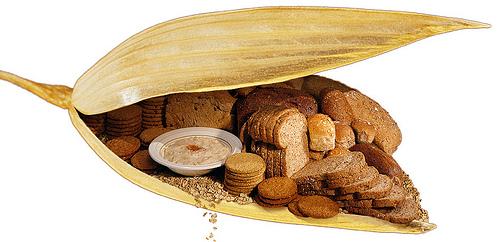 Did you know that gluten, a common protein, is one of the causes of depression, mood swings and other mental health problems? Professor Rodney Ford, a world authority on gluten and food allergies, believes gluten “is sapping the energy and wellbeing of countless millions”, and causing mental health problems.
Did you know that gluten, a common protein, is one of the causes of depression, mood swings and other mental health problems? Professor Rodney Ford, a world authority on gluten and food allergies, believes gluten “is sapping the energy and wellbeing of countless millions”, and causing mental health problems.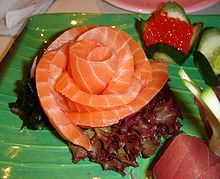 By now you’ve probably heard something about the wonders of omega-3 fat for improving mood. From helping overcome depression and ADHD, to treating Alzheimer’s disease and schizophrenia, some might call omega-3 fat a miracle cure for the mind.
By now you’ve probably heard something about the wonders of omega-3 fat for improving mood. From helping overcome depression and ADHD, to treating Alzheimer’s disease and schizophrenia, some might call omega-3 fat a miracle cure for the mind.
